“We are what we are” – (90 minutes, Mexico, NR)
“We are what we are” is largely about what it takes to keep a family together and that thing here isn’t love. “We are what we are” is a Mexican film written and directed by Jorge Michel Grau whose career so far shows promise, mostly documentaries centered on culture, the arts and education.
It helps to know this as this work of fiction has strong sociological themes, rather specific to Hispanic culture, Mexican in particular.
Thankfully there’s quite a bit of wry humor throughout, even in the opening sequence where Papa, the unnamed pater familias, shambles through a modern mall, a disheveled, homeless looking non-person. This at first reminded me of the credit sequence of “Shaun of the dead” in which morning shoppers and commuters walk in a daze, like zombies.
Watch the trailer here:
Papa, then, finally collapses and dies retching black bile, before two uniformed maintenance workers haul him off like human refuse and a third rides a mopping cart to wipe stains off the marble floor.
But Papa and his family aren’t zombies, they are cannibals living like millions other poor folk on the fringe of society, on streets littered with garbage, dead animals and feral children, strongly echoing Bunuel’s “los olvidados“.
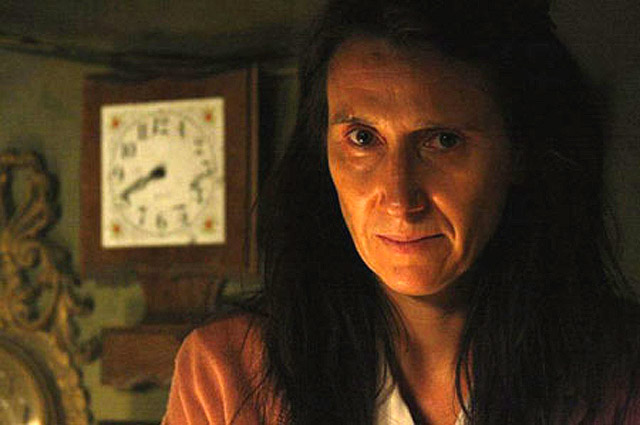
Papa appeared to me like Goya’s Saturn devouring his son, a fitting image for a society which eats its young and vice versa.
As it dawns on Patricia (Carmen Beato) and her three children, Alfredo (Francisco Barreiro), Sabina (Paulina Gaitan) and Julian (Alan Chavez) that Papa’s probably not coming home, the cold fear which gripped them for years finally erupts: someone will have to step in and replace the old man as head of the family, muy rapido.
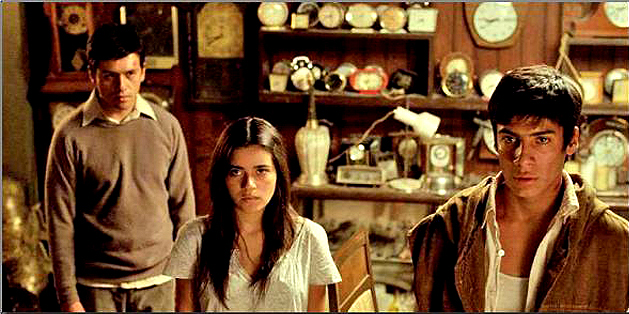
There is additional urgency as the time of the ritual is fast approaching and they are out of money.
The oldest, Alfredo seems the obvious, though reluctant choice. He and Julian, himself almost feral, set out for the street market where their father had a booth, fixing watches. And this seems an anachronism of sorts in a society which disposes of people maybe more easily than goods, or perhaps it says something more about this family always running out of time, eking a living by fixing time pieces. Julian gets into a fight with an irate customer, and the boys flee back to the family shanty, chased by the woman who rented the booth to their father, because he failed to pay her.
As the day of the ritual grows nearer, desperation sets in: Alfredo and Julian kidnap a prostitute, their own father’s typical victim of choice. Later, back home, Patricia’s temper explodes, she beats the tied prostitute to death with a shovel and yells at Alfredo that he doesn’t know what he’s doing, hunting whores like his father, sealing their fate.
Beggars can’t quite be choosers after all, and they go on the hunt again after dropping the dead body back where the boys picked her up.
Meanwhile, another pursuit takes shape: two detectives are converging on the family following the murder and dumping on the whore.
They know they’re on the trail of cannibals, and while cannibals are more common than people know, there could be TV deals at the back end. Why would they bother otherwise, since all police are corrupt..? Alfredo follows a group of young men to a gay bar, where his buried desires merge with hunger. Meanwhile, Patricia has sex with the driver in the back of a taxi cab. It appears that for Patricia, virtually anything’s better than a prostitute, even if one has to use similar bait…
Back home, they suddenly find themselves with more food than they know what to do with: the boy from the gay club and the taxi driver.
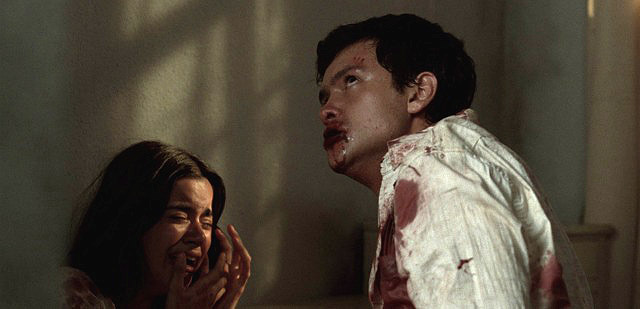
The boy escapes, chased by Alfredo and Julian, and soon finds help in a pair of uniformed officers. In the carnage that follows, Alfredo will show that in a world void of spiritual symbols, ruled by dubious rites and insanity, the ultimate personal sacrifice will go utterly misunderstood and result only in the limited continuation of their damnation. But in matters of the flesh it’s always better to be alive.
How good is “we are what we are“, I can only say this is one of the very few films I watched in recent memory which I would like to see again in a theater, in darkness.
“We are what we are” gets five jellybeans. Soon, we’ll see how to other “family” films of sorts stack up: Beat Takeshi’s “Outrage” and Rowan Joffe’s “Brighton Rock“.
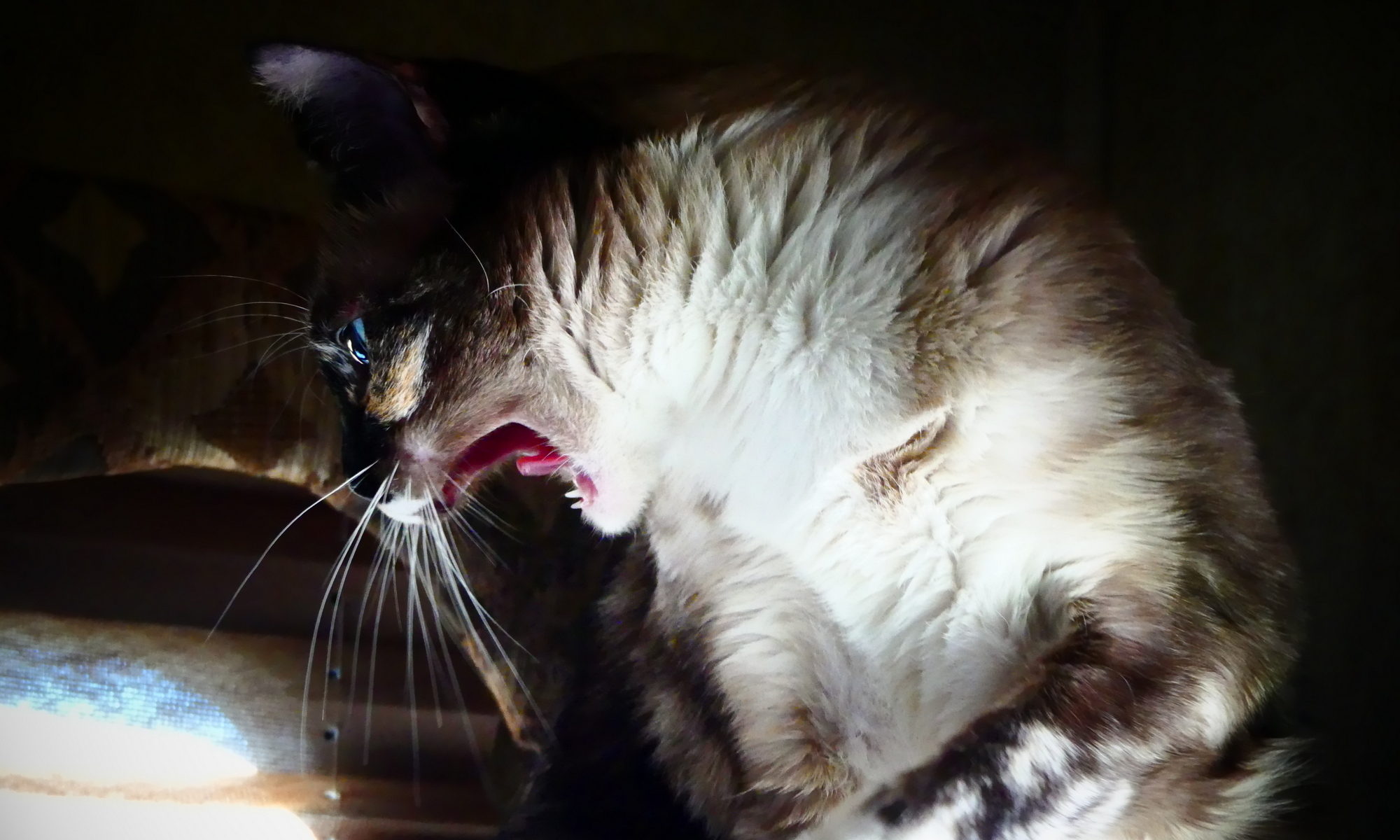
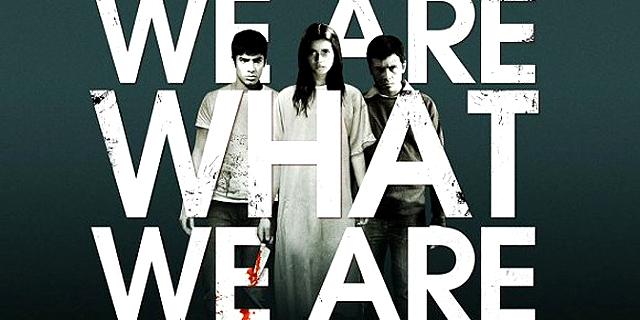



Oooohhh! Looks like I ought to dig this one out of my “to watch” pile and give it a look. I hadn’t yet mostly because of the whole cannibal thing…. takes me a while to work up the nerve to watch one of these sorts of films. But seeing how much you liked it, I’m going to give it a chance soon.
Thanks for the nice review!
I definitely think it’s worth watching, it’s more brutal than gory, really. In some ways it reminded me of the French zombie film “they came back” (les revenants) and “I stand alone” by Gaspar Noé. That said, the touch here is lighter than Noé’s.
The making of featurette is pretty amusing and shows the cast (and crew) having fun on and off the set. It also appears that it will be remade here by Jim Mickle and Nick Damici, who made the post apocalyptic “Stake Land”.
I hope you’ll enjoy it..!